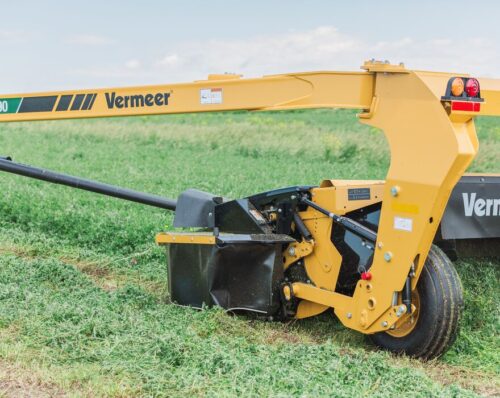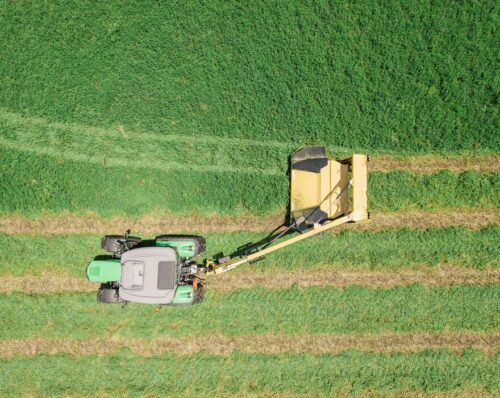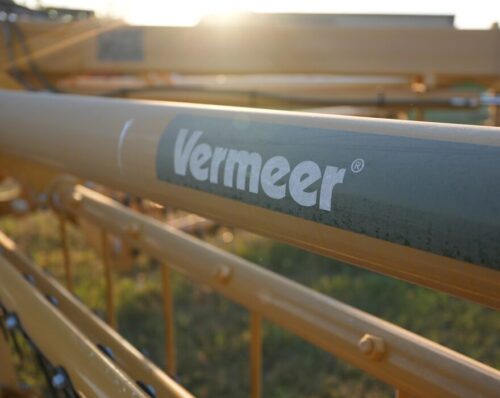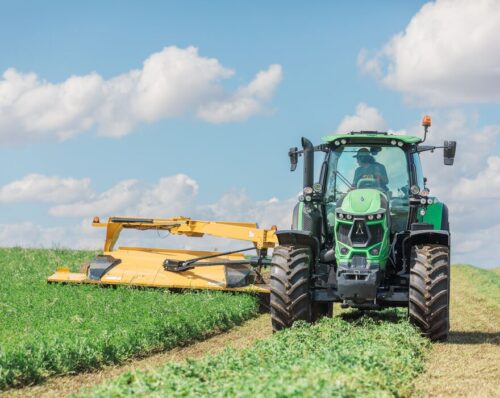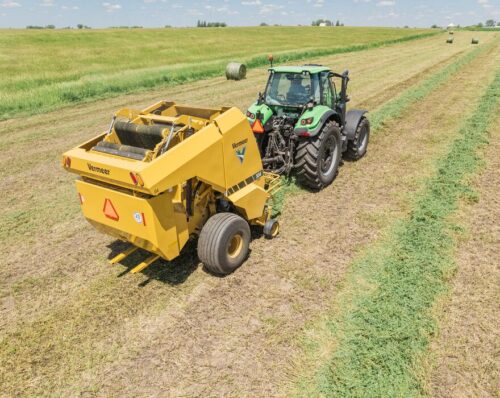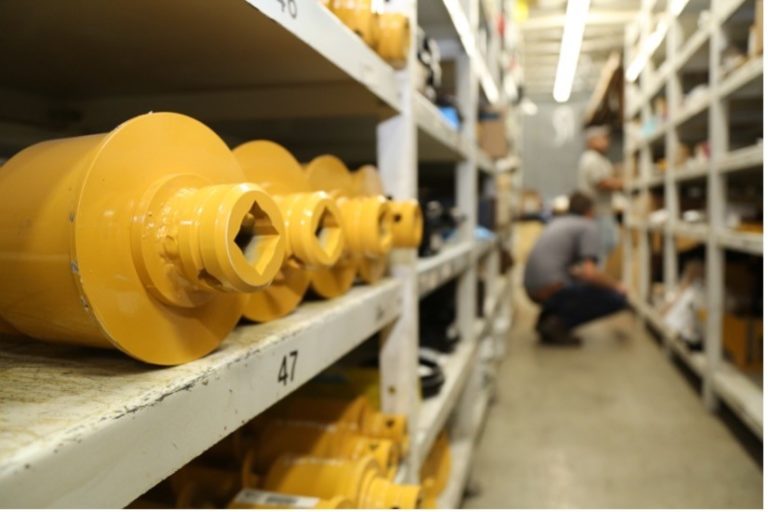
Hay Kings Podcast: Supply Chain Outlook
March 2022
The global pandemic has changed life in countless ways. In the equipment manufacturing industry, supply chain issues have had a tremendous impact on how manufacturers build, distribute and service equipment.
Vermeer Director of Forage Sales and Channel Development, Bret Julian, recently appeared on the Hay Kings podcast to discuss how Vermeer has handled challenges and capitalized on opportunities related to supply chain disruptions.
In case you missed it, here are some key parts of the conversation (edited for readability) on the Hay Kings podcast.
Hay Kings: About two years ago, the world basically came to a stop. What do you remember about that time?
Bret Julian: I remember it clearly. I was in Oklahoma City in March of 2020, and when news broke that the coronavirus had arrived in America, nobody really knew what to do in that moment in time. People were racing to the phones to cancel this or that because you just didn’t know.
But what was really interesting, is that business never stopped on the hay and forage side of things. It was counterintuitive because you would have thought people would stop buying hay equipment due to uncertainty. But that didn’t happen. Hay producers still wanted and needed new equipment.
Hay Kings: What initial challenges did Vermeer face because of the pandemic?
Bret Julian: Like many companies, we initially faced some labor challenges in the factories, with people concerned about health and safety. But we were able to put some safety protocols in place quickly, helping people feel safe and confident at work. So it didn’t really slow us down.
Hay Kings: What about supply chain disruptions?
Bret Julian: The demand for hay tools remained high, so we were working hard to satisfy the needs of our hay and forage dealers. There were some minor disruptions with a few suppliers that were stopping and starting production. But again, it didn’t really slow us down. In fact, it wasn’t until August of 2021 that we really felt the impact.
Hay Kings: At that point, what was your message to your dealers?
Bret Julian: That we’re staying the course with the equipment orders we have on the books. And that we’re doing everything in our power to fulfill those orders. That was the message at the time.
Hay Kings: And how have things changed since then?
Bret Julian: Right now, the message remains the same: We are doing everything in our power to fulfill orders. The disruptions we have faced are typically one or two parts that you need to complete a machine. Instead of getting those parts today, you might get them a week or two later. So, what happens is shipments go out in big chunks or waves, instead of a consistent daily flow like you normally have. This impacts the manufacturing and delivery process, obviously. But for the most part, it hasn’t affected our dealers and customers. We’re still able to deliver by season.
Hay Kings: Explain the “delivery by season” concept.
Bret Julian: We begin taking dealer orders near the end of the hay season, so in August and September, and this informs our procurement process. We know how many, say, gearboxes or drivelines to order to meet demand. Our goal then is to make sure all equipment orders are fulfilled before the start of the next hay season. That way our dealers and customers don’t miss a beat.
Hay Kings: How has Vermeer pivoted to address changes or challenges?
Bret Julian: I wouldn’t say there have been any major pivots. I have to tip my hat to our supply chain specialists who have been working hard to find creative solutions. For example, say one of our parts suppliers can’t deliver on time because they are missing one component to finish the part. We are talking to our other suppliers and seeing if we can source that missing piece. At times, we’re actively helping our parts suppliers so they can help us.
Hay Kings: Any major changes in production?
Bret Julian: Not nearly to the extent that you might assume. So far we haven’t had to shut down any production lines. We may, however, reduce the daily production rates in some areas. A line that typically produces, say, 10 machines per day may go down to six machines per day.
Hay Kings: So Vermeer hay equipment production hasn’t really slowed down?
Bret Julian: Not really. Actually, in 2021, we produced about 20% to 25% more pieces of equipment than we did in 2020. The market demand was about 30% to 40% higher, and we were able to come pretty close to meeting that.
Hay Kings: What is the outlook for 2022 in terms of parts availability?
Bret Julian: The short answer is that it’s going to be a bit more “bare shelf” than you’d like. This is being seen everywhere from the auto industry to grocery stores. But we are certainly prioritizing parts. We have control over the Vermeer genuine parts we build. That comes down to labor and scheduling. It’s the parts we stock from suppliers where we have less control.
Hay Kings: Given that, what advice would you give to Vermeer equipment owners?
Bret Julian: My advice is to be proactive. If you haven’t already, get your hay equipment into your dealer for preseason maintenance. Many times folks wait and call up their dealers in April hoping to get their equipment in before the season starts. The sooner you get it in to be looked at, the better chances you have of ensuring your equipment is ready to roll once the first hay cut comes around. Preventative maintenance is a great way to mitigate your parts and service needs.
Hay Kings: Lastly, how have supply chain disruptions impacted the cost of equipment?
Bret Julian: It’s basic economics that, as manufacturing costs go up and rampant inflation drives prices up, there will be some impact on the consumer. The cost of steel has tripled. Importing components is much more expensive. A freight container that used to cost $4,000 to ship now costs $12,000 to $15,000. We have no control over these factors. But we can control forecasting. Right now, we’re forecasting out 24 months. Being smart about procurement is one way we can minimize the impact on our dealers and customers in terms of getting Vermeer hay equipment delivered on time and at a fair price.

